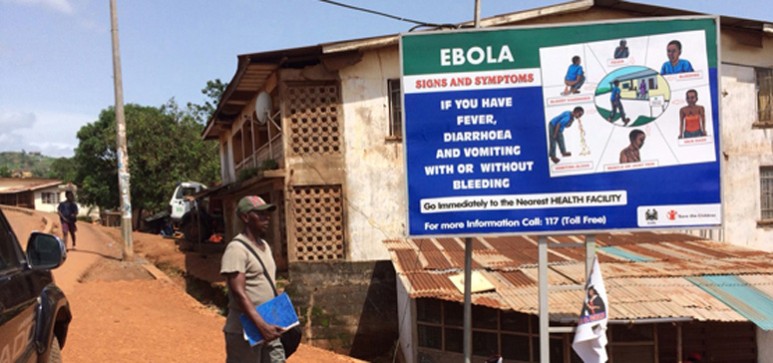 U.S. Center for Disease Control
U.S. Center for Disease Control
U.S. Made “Plantibody” vs. Ebola
Amidst the horror and despair of the Ebola epidemic which has unfolded throughout Western Africa, one can find little reason for optimism. Each new development in this human tragedy has revealed the failure of local government, the limitations of regional healthcare systems, the reluctance of foreign intervention and the severity of weak global response protocol to potential pandemics. From this state of despondency, a promising new pharmaceutical enterprise was called to action and emerged into the world’s consciousness.
ZMapp burst from obscurity when it was used for the treatment of two American aid workers who had contracted the Ebola virus in Liberia. While analysis of the results of the drug are ongoing, we do know that both Dr. Kent Brantly and Nancy Writebol survived their encounter with the virus and that their conditions rapidly improved after receiving the ZMapp antibody. These results are consistent with testing completed on lab monkeys. Dr. Brantley and Writebol were the first human subjects, volunteering for the experimental antibodies. That decision most likely saved their lives.
Mapp Biopharmaceuticals (maker of ZMapp) is a San Diego based pharmaceutical development company. Their experimental ZMapp drug captured headlines for its potential in combating Ebola, but it is should also attract curiosity as the most sensational use of “plantibodies” to date. These are antibodies which are grown in plants and can be synthesized for highly specialized use in combating pathogens which prove difficult to vaccinate against.
The process of creating “plantibodies” is not difficult to understand. Virus and antibody genes are inserted into a plant effectively infecting it. The gene targets the virus creating antibodies. This process spreads throughout the plant. As the plant grows the amount of antibodies grow. “We get a leaf that’s jam-packed with monoclonal antibodies and then grind that up and use normal pharmaceutical processes to purify it” says Charles Arntzen, a plant biologist at Arizona State University. Arntzen also works with Mapp Biopharmaceuticals.
There are two significant advantages to the use of “plantibodies”. First, they are much more cost effective to produce than traditional antibodies created with cell cultures. Plant-based production can cost as little as one-tenth the expense of cell culture production. Lower costs in production of antibodies could mean proportionately larger access to the needed drugs in impoverished nations which have the greatest need. Second, the amount of antibodies created in plants can far exceed the amount created through the use of mammalian cell cultures. Professor Erice Ollman Saphire states “It is grown in a greenhouse and you can manufacture kilograms of the material. It is much less expensive than cell culture.”
With such possibilities it is hard to believe that larger pharmaceutical companies have yet to commit to this new technique. This is in part due to the substantial investment they have made in their current system of cell culture production. “Developing new drugs is a very expensive and risky business” says Qiang Chen, a professor at Arizona State University. “I understand why they don’t want to jump into new technology that will make their lives potentially more risky.”
The industry leaders may require further evidence to invest significant resources into this endeavor, but another organization sees great promise in plant produced antibodies. The Pentagon’s Defense Advanced Research Projects Agency (DARPA) has contributed funding to the research being conducted by Mapp Biopharmaceuticals. DARPA has shown interest in “plantibodies” as a possible method for stockpiling a response to a bioterror attack. “It may work best when speed is required or when flexibility is required… to manufacture vaccines for an epidemic or for fast, reliable production” says Victor Klimyuk of Icon Genetics.
With the exception of ZMapp and Elelyso, an Israeli drug used for the treatment of Gaucher disease, plant produced antibodies have yet to enter the pharmaceutical market to any significant extent. However, the potential is real and worth investigating further. With the highly specialized abilities of these antibodies, it is speculated that they could be used in the treatment of unvaccinated ailments like HIV or even cancer. Here we see another opportunity for American innovation, employment and competitive advantage. Through the advancement of low cost, high volume, effective antibody pharmaceuticals, U.S. firms could lead the market while providing much needed relief to suffering populations around the world. With a 90% reduction in production costs, humanitarianism may become profitable. Could we imagine a better development in U.S. foreign policy?






[…] U.S. Made “Plantibody” vs. Ebola […]